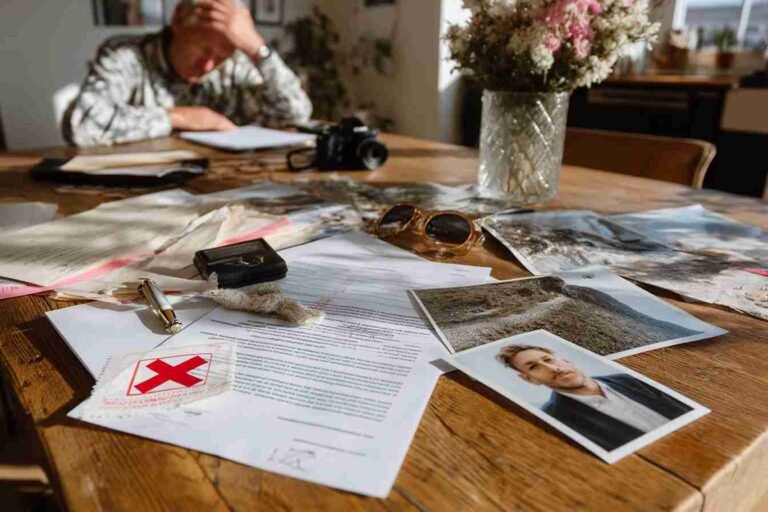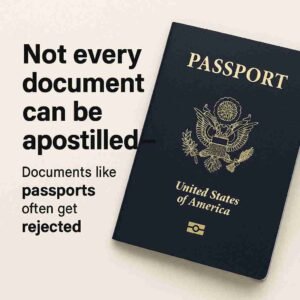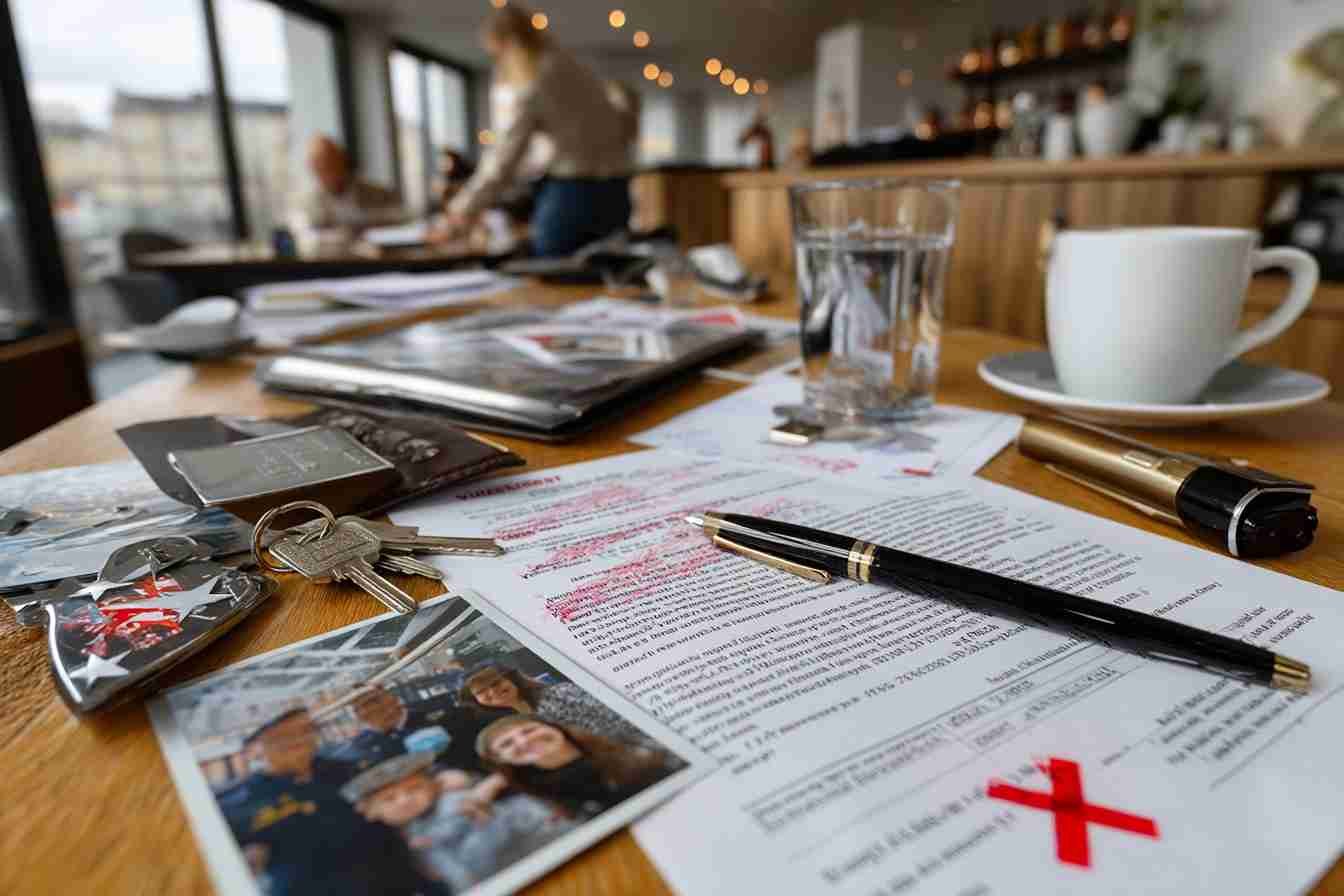
Getting your important documents apostilled in Bali, Indonesia should be simple right? But for many foreigners, it quickly turns into a frustrating maze. Whether you’re handling visa paperwork, planning a wedding abroad, or preparing a school enrollment, even a small mistake can lead to outright rejection.
😣 Many expats don’t realize that Indonesia has very specific rules when it comes to apostilles—especially in Bali. Using photocopies, submitting expired documents, or even going to the wrong office can result in rejection, delays, and stress you definitely didn’t plan for.
✅ The good news? These rejections are avoidable. You can protect your plans by learning what to avoid and how to do it right.
🗣️ “I had no idea my document couldn’t be notarized, it cost me two weeks of delay,” shared a digital nomad living in Bali. “Wish I had known earlier!”
👉 In this guide, we’ll walk you through the Top 7 Reasons Foreigners Get Their Apostille Rejected in Bali, Indonesia and more importantly, how you can sidestep each one with confidence. From notarization mistakes to translation troubles, we’ve got your back. 💪
🚀 Ready to get your documents approved the first time? Let’s dive in and make the apostille process in Bali, Indonesia smooth and stress-free. 🌍
Table of Contents
- The Document Type Is Not Eligible for Apostille
- Incorrect or Incomplete Document Information
- Notarization Mistakes or Unauthorized Certification
- Wrong Authority or Submission Location
- Expired, Outdated, or Invalid Documents
- Language or Format Not Accepted in Indonesia
- Forgery, Fraud, or Verification Failure
- Frequently Asked Questions
The Document Type Is Not Eligible for Apostille
Not every document can be apostilled—and that’s something many foreigners find out too late. 😬
Documents like passports, religious certificates, or commercial contracts often get rejected because they are not recognized under the Hague Apostille Convention.
Laminated pages or documents with photos are also problematic because they can’t be stamped properly. 📄🔒
If you’re unsure whether your document is eligible, check with the Ministry of Law and Human Rights or an official apostille provider in Indonesia before you apply.
Double-checking in advance can save you time, money, and a lot of frustration. ✅
Incorrect or Incomplete Document Information
A tiny mistake can lead to total rejection. 😖 Apostille officers in Indonesia are trained to spot issues like misspelled names, mismatched dates, or missing stamps.
Submitting photocopies instead of originals is also a big no-no. Faded ink, blurry text, or poor formatting may also get your document rejected. 🚫
The fix? Review your documents carefully or have a professional double-check them before submission.
Make sure all names, dates, and stamps are clear, accurate, and consistent. It’s better to take extra time now than face delays later. ⏱️
Notarization Mistakes or Unauthorized Certification
Not all documents need to be notarized—but if they do, the notary must be official and active. ⚠️
Many rejections happen because people either skip the notarization step when it’s required or notarize something that should not be notarized (like a birth certificate).
Using an expired or fake notary also leads straight to rejection. ❌
Before notarizing anything, confirm if it’s necessary for that document type. Then check if your notary is certified and up to date. A trusted legal consultant can guide you through this to avoid mistakes. 📜
Wrong Authority or Submission Location
Where you submit your document matters—a lot. 🌏
If the document was issued in another country (like the U.S., UK, or Australia), it must be apostilled there, not in Indonesia. Sending a U.S. document to an apostille office in Bali, for example, will get it rejected right away.
Always send your document to the authority in the country and state where it was originally issued. In Indonesia, the correct offices are the Ministry of Law and Human Rights and the Ministry of Foreign Affairs.
Submit it to the wrong place, and it won’t even get processed. 📨❗
Expired, Outdated, or Invalid Documents
Some documents need to be recent. If your SKCK (police certificate), affidavit, or medical report is older than a few months, there’s a good chance it’ll be rejected.
🕰️ Many countries—including Indonesia—want documents that are up-to-date to prove they reflect your current status.
Before submitting, check your document’s issue date and ask the apostille office if it’s still valid. Renew or reissue anything that’s expired or close to expiring.
A fresh document gives you a much higher chance of success. 🧾
Language or Format Not Accepted in Indonesia
Indonesia only accepts apostille submissions in Bahasa Indonesia or English. 📘
If your document is in another language—like Russian, French, or Mandarin—you’ll need a certified translation from a sworn translator. Submitting without this will get your application denied. 🔄
Also, check formatting rules. Some documents must be printed single-sided, on A4 paper, or free of lamination.
Always follow the format guidelines to the letter. Ask your apostille agent if you’re not sure what the correct layout should be. 🗂️
Forgery, Fraud, or Verification Failure
One of the most serious (and sadly common) reasons for apostille rejection in Bali is fraud—especially involving SKCK documents. 🕵️♂️
Foreigners sometimes turn to local individuals found through social media platforms like Facebook to obtain a police clearance.
But here’s the truth: about 75% of these connections lead to scams. 😨
Scammers often provide fake SKCKs with copied stamps, incorrect seals, or invalid names that don’t match police records.
They may look official—but apostille officers can quickly tell they’re fraudulent. Submitting a forged document will not only lead to rejection, but may also damage your credibility with authorities. ❌
To protect yourself:
✅ Avoid agents without a professional website (especially if not in Bahasa Indonesia)
✅ Never send payments to personal accounts
✅ Ask for official proof of registration before proceeding
The safest route? Always go through licensed apostille providers or agents recommended by embassies or legal professionals. It might cost a bit more—but it saves you from legal trouble and unnecessary delays. 🛡️
Frequently Asked Questions
-
Can I use a scanned copy for apostille?
No, only original hard copies are accepted for apostille. Scans or photocopies will be rejected. 📷
-
Do all documents need notarization first?
Not all. Some require notarization, others don’t. Check based on the document type. 🖊️
-
What if my document is in French or Japanese?
You need a certified translation in Bahasa Indonesia or English before applying. 🈳
-
How long does an apostille take in Indonesia?
Usually 7–9 working days, but longer during peak times or holidays. 📆
-
Can a rejected document be fixed and resubmitted?
Yes, in most cases. Correct the issue and apply again. 💡








